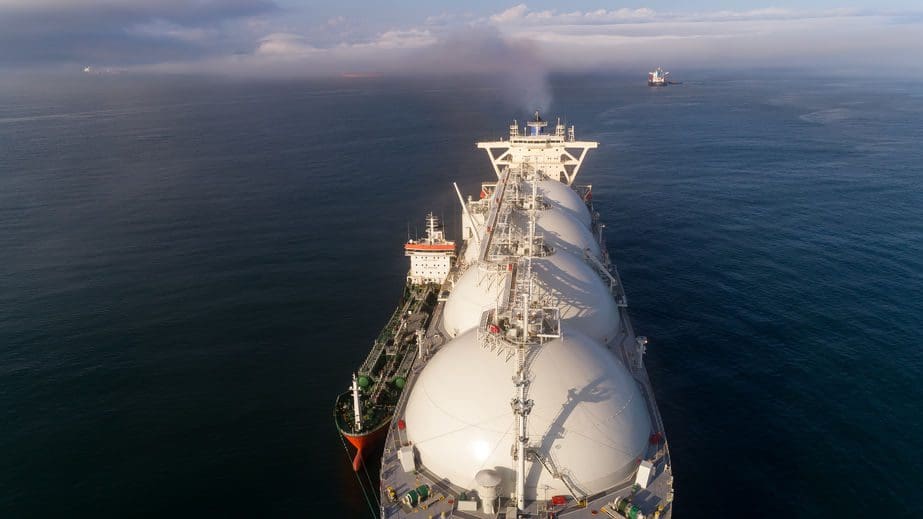On January 1, 2020, the new International Maritime Organization’s regulation—dubbed “IMO 2020”—for sulfur reduction from 3.5% to 0.5% will go into effect. The regulation stipulates that oceangoing vessels must use either a cleaner bunker fuel, have on-board gas stack scrubbers to clean the higher sulfur fuel or use an alternative marine fuel such as LPG, LNG or methanol. With the regulation comes the need for inspections and enforcement to give the new rule “teeth” and force compliance.
In early 2018, the IMO was clearly thinking of non-compliance and offered additional mechanisms to tighten enforcement and force compliance. Two mechanisms included providing the Port States with additional authority to enforce IMO 2020 rule compliance and a potential loss of insurance for those shippers/owners not in compliance with the lower sulfur fuel or on-board scrubbers.
Recent Consequences of IMO 2020 Non-Compliance
Even with additional administrative “teeth”, actions speak louder than words. Two recent examples speak to the seriousness of enforcement and penalties for non-compliance.
In April 2019, Singapore issued a statement to discourage non-compliance with the low-sulfur ban. The Maritime and Port Authority of Singapore stated that “captains and owners of vessels that burn overly sulfurous fuel could face as long as two years in prison from the start of 2020.” Penalties would be maximized if the shipowners and crew were found to falsify documents or obstruct routine investigations.
On August 23, 2019, the owners and operators of the Ocean Princess were convicted and fined $3 million for pollution violations for the use of fuel that exceeded allowable sulfur concentrations and attempting to deceive the U.S. Coast Guard. Three ship officers were each convicted and banned from the Caribbean for three years and each were required to pay an additional fine. The Master officer (80-year-old veteran seafarer with 45 years as a Master) stated he was just following the practice aboard the vessel. He failed to stop a practice he knew was wrong, thereby ending his career with a criminal conviction.
Impact of IMO 2020 Non-Compliance on the Supply Chain
Vessels are integral to the energy supply chain. Refiners, shippers, suppliers, owners and vessel operators cannot afford the penalties of non-compliance. A vessel provides economies of scale to transport feedstock (crude or other feedstocks) or refined products to market. Each party is incented to avoid delays in the supply chain and avoid unnecessary delays, penalties or fines.
The supply chain efficiencies would be hurt based on being caught for non-compliance. The first cost is financial. As with the case in the U.S. Virgin Islands, the shipowners and operators incurred a penalty. The $3 million was meant as a signal to other potential offenders. Some owners and operators may be able to cover the $3 million without issues. Most cannot and will suffer financially.
The second cost is to reputation. The energy supply chain is based on relationships and working with reputable parties to provide for feedstocks or deliver finished products. More and more, energy companies are getting savvy in only dealing with players that have a good reputation. Still recent in the minds of refiners are the issues with fraudulently issued Renewable Identification Numbers (RINs) under the Renewable Fuels Standard program. There are numerous cases of fraud by the U.S. Department of Justice for those that tried to deceive. These individuals and companies were placed on “blacklists” and circulated amongst the reputable companies.
The third cost of non-compliance is time. The Ocean Princess was anchored at the port in the U.S. Virgin Islands and detained along with the crew while the investigation was underway. That represents a huge cost to the supply chain where each party tries to run lean, just-in-time inventory. A detained ship means that product was either not delivered or picked up according to schedule. That imposes other delays downstream in the process, affecting overall inventory and increasing costs unnecessarily.
Preparing for a New World
With the new regulation soon to go into effect companies must ask themselves what is to be done. Companies must plan and think about managing their supply chain effectively. It’s paramount that shippers, refiners, marketers and traders prepare now so fines don’t mount, and trade flows aren’t further disrupted. Refiners must focus on relationships with suppliers and other logistics companies now to negotiate term deals for fuel.
At Opportune, we can help progress your supply chain capabilities. The key to success is understanding your current capabilities and how you can leverage technology to manage inventory, contracts and relationships with logistics and suppliers. We have experience in helping companies transform basic capabilities into world-class ones. Whether it’s digitizing current capabilities with trading risk management systems or improving integration with logistics providers, Opportune can propel your capabilities to the next level. Our focus applies a practical approach to transform companies in order to meet their goals. With a handle on the supply chain, companies can plan out their logistics and bunkering strategies effectively to face the new IMO 2020 regulations.
Patrick Long is a Director in Opportune’s Process & Technology practice. Patrick has over 20 years of experience in providing clients with energy trading and risk management, packaged software implementation, trading and risk processes and business process automation. Patrick leads the BI initiative within the firm. He focuses on applying BI tools (e.g., Spotfire and Tableau) to client data in order to allow proper insight for management around both upstream and downstream business issues. Prior to joining Opportune, Patrick worked in the energy consulting trading and risk systems practice at Accenture where he managed multiple project teams through the entire process of software selection to successful implementation of trading and risk management systems for energy trading entities.






